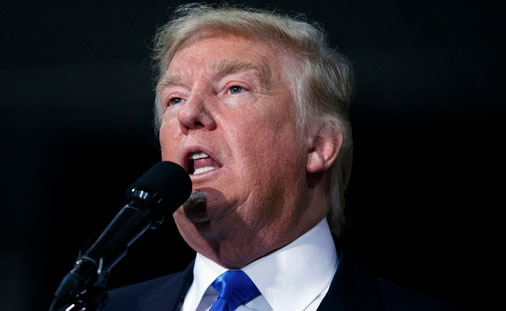By Anca Voinea
Now that America has chosen its 45th president, co-operatives will be wondering what Donald Trump can do for them.
The president-elect has already pledged to cut taxes and promote deregulation in an attempt to boost growth.
In his victory speech, he said: “It is time for us to come together as one united people. It is time. I pledge to every citizen of our land that I will be President for all of Americans, and this is so important to me.
“Working together, we will begin the urgent task of rebuilding our nation and renewing the American dream.”
There may be an opportunity for co-operatives here, but it may not be until his inauguration on 20th January 2017 that we get a clear picture about his policies.
But what do we know?
On the campaign trail, the president-elect expressed his support for rural energy co-operatives during a speech hosted by South Carolina’s Broad River Electric Co-operative in February.
Ahead of the speech, Mr Trump met with co-op representatives to discuss issues of concern for the sector and highlighted the importance of reliable electricity to communities. He made no clear reference to rural co-ops in his positions, but pledged to repeal the Clean Power Plan and the Waters of the US rules along with other environmental regulations.
The process of withdrawing and replacing these rules is however, likely to be lengthy. NRECA, the National Rural Electric Cooperative Association, has criticised the Clean Power Plan for “burdening electric co-ops with a disproportionate share of the costs”.
Another sector that could be affected by change is healthcare. Mr Trump has made his plans clear to repeal the Affordable Care Act. Also known as Obamacare, the bill has provided $2.4bn in federal loan money to help start-up organisations seeking to establish consumer owned plans, which work as co-operatives.
Only six of the 23 consumer oriented and operated plans (CO-OPs) continue to exist, after the others found themselves in financial difficulties. Mr Trump described President Obama’s signature health reform as “a disaster” and said he intends to replace Obamacare with tax breaks to encourage people to buy insurance. For this, however, he would need support from the Senate. Around 20 million people have health coverage because of the Affordable Care Act, according to the Department of Health and Human Services.
In terms of banking regulation, Mr Trump said he intended to scrap or completely change the 2010 law that reformed the regulatory law post 2008 crisis, known as Dodd-Frank. He claimed that the regulatory climate was preventing banks loaning to businesses and was decelerating growth. The president-elect has also called for abolishing the Consumer Financial Protection Bureau created under the law.
Mr Trump ran for president along with governor Mike Pence, who is a keen supporter of credit unions in his state, Indiana. The governor has also opposed the Dodd-Frank law, in the past arguing it would “kill jobs, raise taxes and restrict the flow of credit”.
While in Congress and as a governor, Mike Pence met with credit union groups in Indiana and Washington. As governor, he signed a prize-linked savings bill into law, which enabled credit union members to save $1.6m through a Save to Win product. Earlier this year, the governor also appointed the first-ever representative from a credit union to the Indiana Board of Depositories.
Mr Pence has received donations from credit union bodies throughout his political career; the Credit Union National Association’s political action committee was the seventh largest contributor to Pence during his congressional career. Since the passing of the reform, both the National Association of Federal Credit Unions and the Credit Union National Association have warned about the costs to credit unions arising, which, they said, faced higher compliance burdens.
Mr Trump opposes free trade and is against the Transatlantic Trade and Investment Partnership (TTIP). Renegotiating trade agreements is likely to have a high impact on agricultural co-ops, which is reliant on trade. He is also promising tougher immigration rules, which could make it harder for agri-businesses to recruit; the US agriculture sector employs an estimated 1.4 million workers that are in the USA illegally. Mr Trump said he would include farmers and ranchers in the process of determining the immigration policies. He also pledged to reduce regulations for farmers.
Earlier this year Donald Trump announced his new Agricultural Advisory Committee, which includes Chuck Conor, president of the National Council of Farm Cooperatives, a former deputy agriculture secretary during the George W. Bush administration. The council has advocated giving undocumented immigrants who work in the agriculture industry permanent legal status.
International co-operative development is also an area that is likely to be affected by the presidential election. Paul Hazen, executive director of the US Overseas Cooperative Development Council (OCDC), which brings together nine organisations aiming to champion effective international co-operative development, said it was unclear what a President Trump would do for co-operatives.
“To my knowledge he does not have a position on co-operatives. I am very concerned that he will discontinue US economic assistance in the developing world and that would put millions of people back into poverty,” he said.
-ICA News
